幻聴で思った事その4
2023.05.03(Thu)
福岡大
英検一級
Psychology's Replication Crisis
Reproducibility is a cornerstone of science,yet a growing chorus of researchers have claimed that numerous experiments,even ones carried out by esteemed psychologists and reported in presigious journals,cannot be successfully replicated.
One notable example is a widely cited piece of psychological research claiming that completing word puzzles designed to evoke images associated with old age caused the experiment's subject ti walk more slowly afterward.
However,it has never been successfully confirmed by other researchers.
Defenders of studies that came under fire when they could note be replicated,however,presented a host of possible explanations for the inconsistencies,alleging that the researchers who attempted the replications lacked the necessary competence,or claiming that sample sizes in the follow-ups had been insufficient.
In response,a project was undertaken under the direction of University of Virgina researcher Brian Nosek in the 2010s that put nearly 100 celebrated psychology studies to the test by attempting to reproduce them.
Every effort was made to ensure the experiments ware as reliable as possible,including increasing the grade,highlighting what has been dubbed psychology's "replication crisis".
while there have been cases of outright fraud and complaints that journals tend to favor studies that confirm the researchers' hypothesis,perhaps the most disturbing tend revealed in the wake of Nosek's study is what is known as "p-hacking".
This is coined from the statistical term "p-value," which is calculated by researchers to show the probability that their experimental results are actually being produced by the effect they are studying rather than by random chance or some other factor.
In their quest to obtain an acceptable p-value,researches have been accused of omitting undesirable data,choosing statistical tests that are more likely to confirm their desired results,and being selective about which observation are compared with each other.
In one survey,over 40 percent of psychology researchers admitted to some form of p-hacking,and,astonishingly,the majority felt their research methods were defensible because they were carrying out practices that makes p-hacking so insidious.
The combined effect of fraud,publications bias,and p-hacking has caused many to question the validity of psychology studies appearing in well-known textbooks and journals.
While some researchers worry the crisis will reduce their field to the status of pseudo-scientific nonsense,others have noted that it could be beneficial.
The follow-up testing conducted in Nosek's study that brought the validity of psychological research into question actually demonstrates that lab experiments,when conducted to the highest standards of practice,are a valid method of studying human behavior.
In addition,the reproduction of some original findings helps validate the theories behind them,Nosek says studies like the ones in his project are usually overlooked because "the incentives for individual scientists prioritize novelty over replication.
"He suggests that enticements such both now discoveries and the substantiation of previous ones.
幻聴で思った事その4
2023.05.04(Fri)
福岡大
心理学の複製危機
再現性は科学の基礎ですが、多くの実験は、尊敬される心理学者によって実施され、著名なジャーナルで報告されたものでさえ、うまく再現できないと主張する研究者が増えています.
注目すべき例の 1 つは、広く引用されている心理学的研究の一部であり、老齢に関連するイメージを呼び起こすように設計された単語パズルを完成させると、実験の被験者のその後の歩行がより遅くなったと主張しています。
ただし、他の研究者によって成功裏に確認されたことはありません
しかし、複製を試みた研究者が必要な能力を欠いていたと主張したり、フォローアップのサンプルサイズが不十分でした。
それに応えて、2010年代にバージニア大学の研究者であるブライアン・ノセックの指揮の下、100近くの有名な心理学研究を再現しようとするプロジェクトが開始されました.
心理学の「複製の危機」と呼ばれるものを強調して、グレードを上げるなど、実験が可能な限り信頼できるものであることを保証するためにあらゆる努力が払われました.
ジャーナルが研究者の仮説を裏付ける研究を支持する傾向があるというあからさまな詐欺や苦情の事例がありましたが、Nosek の研究をきっかけに明らかになった最も気がかりな傾向は、おそらく「p-ハッキング」として知られているものです。
これは統計用語「p値」からの造語で、研究者が実験結果がランダムな偶然やその他の要因ではなく、研究している効果によって実際に生成されている確率を示すために計算されます。
許容できるp値を得ようとする研究は、望ましくないデータを省略したり、望ましい結果を確認する可能性が高い統計的検定を選択したり、どの観察結果を互いに比較するかを選択したりしていると非難されてきました.
ある調査では、心理学研究者の 40% 以上が何らかの形で p-ハッキングを行ったことを認めており、驚くべきことに、その大多数が自分たちの研究方法は正当化できると感じていました。
詐欺、出版バイアス、および p-ハッキングの複合効果により、多くの人が、有名な教科書や雑誌に掲載されている心理学研究の有効性に疑問を投げかけています。
一部の研究者は、この危機によって自分たちの分野が疑似科学的でナンセンスな状態になることを懸念していますが、他の研究者はそれが有益である可能性があると指摘しています。
Nosek の研究で実施された、心理学的研究の妥当性に疑問を投げかけた追跡テストは、最高水準の実践で実施された実験室での実験が、人間の行動を研究する有効な方法であることを実際に示しています。
さらに、いくつかのオリジナルの発見を再現することは、その背後にある理論を検証するのに役立ちます.Nosekは、「個々の科学者のインセンティブは複製よりも新規性を優先するため」、彼のプロジェクトのような研究は通常見過ごされている.
彼は、そのような誘惑が現在の発見と以前の発見の実証の両方であることを示唆しています。
2023.05.03(Thu)
福岡大
英検一級
Psychology's Replication Crisis
Reproducibility is a cornerstone of science,yet a growing chorus of researchers have claimed that numerous experiments,even ones carried out by esteemed psychologists and reported in presigious journals,cannot be successfully replicated.
One notable example is a widely cited piece of psychological research claiming that completing word puzzles designed to evoke images associated with old age caused the experiment's subject ti walk more slowly afterward.
However,it has never been successfully confirmed by other researchers.
Defenders of studies that came under fire when they could note be replicated,however,presented a host of possible explanations for the inconsistencies,alleging that the researchers who attempted the replications lacked the necessary competence,or claiming that sample sizes in the follow-ups had been insufficient.
In response,a project was undertaken under the direction of University of Virgina researcher Brian Nosek in the 2010s that put nearly 100 celebrated psychology studies to the test by attempting to reproduce them.
Every effort was made to ensure the experiments ware as reliable as possible,including increasing the grade,highlighting what has been dubbed psychology's "replication crisis".
while there have been cases of outright fraud and complaints that journals tend to favor studies that confirm the researchers' hypothesis,perhaps the most disturbing tend revealed in the wake of Nosek's study is what is known as "p-hacking".
This is coined from the statistical term "p-value," which is calculated by researchers to show the probability that their experimental results are actually being produced by the effect they are studying rather than by random chance or some other factor.
In their quest to obtain an acceptable p-value,researches have been accused of omitting undesirable data,choosing statistical tests that are more likely to confirm their desired results,and being selective about which observation are compared with each other.
In one survey,over 40 percent of psychology researchers admitted to some form of p-hacking,and,astonishingly,the majority felt their research methods were defensible because they were carrying out practices that makes p-hacking so insidious.
The combined effect of fraud,publications bias,and p-hacking has caused many to question the validity of psychology studies appearing in well-known textbooks and journals.
While some researchers worry the crisis will reduce their field to the status of pseudo-scientific nonsense,others have noted that it could be beneficial.
The follow-up testing conducted in Nosek's study that brought the validity of psychological research into question actually demonstrates that lab experiments,when conducted to the highest standards of practice,are a valid method of studying human behavior.
In addition,the reproduction of some original findings helps validate the theories behind them,Nosek says studies like the ones in his project are usually overlooked because "the incentives for individual scientists prioritize novelty over replication.
"He suggests that enticements such both now discoveries and the substantiation of previous ones.
幻聴で思った事その4
2023.05.04(Fri)
福岡大
心理学の複製危機
再現性は科学の基礎ですが、多くの実験は、尊敬される心理学者によって実施され、著名なジャーナルで報告されたものでさえ、うまく再現できないと主張する研究者が増えています.
注目すべき例の 1 つは、広く引用されている心理学的研究の一部であり、老齢に関連するイメージを呼び起こすように設計された単語パズルを完成させると、実験の被験者のその後の歩行がより遅くなったと主張しています。
ただし、他の研究者によって成功裏に確認されたことはありません
しかし、複製を試みた研究者が必要な能力を欠いていたと主張したり、フォローアップのサンプルサイズが不十分でした。
それに応えて、2010年代にバージニア大学の研究者であるブライアン・ノセックの指揮の下、100近くの有名な心理学研究を再現しようとするプロジェクトが開始されました.
心理学の「複製の危機」と呼ばれるものを強調して、グレードを上げるなど、実験が可能な限り信頼できるものであることを保証するためにあらゆる努力が払われました.
ジャーナルが研究者の仮説を裏付ける研究を支持する傾向があるというあからさまな詐欺や苦情の事例がありましたが、Nosek の研究をきっかけに明らかになった最も気がかりな傾向は、おそらく「p-ハッキング」として知られているものです。
これは統計用語「p値」からの造語で、研究者が実験結果がランダムな偶然やその他の要因ではなく、研究している効果によって実際に生成されている確率を示すために計算されます。
許容できるp値を得ようとする研究は、望ましくないデータを省略したり、望ましい結果を確認する可能性が高い統計的検定を選択したり、どの観察結果を互いに比較するかを選択したりしていると非難されてきました.
ある調査では、心理学研究者の 40% 以上が何らかの形で p-ハッキングを行ったことを認めており、驚くべきことに、その大多数が自分たちの研究方法は正当化できると感じていました。
詐欺、出版バイアス、および p-ハッキングの複合効果により、多くの人が、有名な教科書や雑誌に掲載されている心理学研究の有効性に疑問を投げかけています。
一部の研究者は、この危機によって自分たちの分野が疑似科学的でナンセンスな状態になることを懸念していますが、他の研究者はそれが有益である可能性があると指摘しています。
Nosek の研究で実施された、心理学的研究の妥当性に疑問を投げかけた追跡テストは、最高水準の実践で実施された実験室での実験が、人間の行動を研究する有効な方法であることを実際に示しています。
さらに、いくつかのオリジナルの発見を再現することは、その背後にある理論を検証するのに役立ちます.Nosekは、「個々の科学者のインセンティブは複製よりも新規性を優先するため」、彼のプロジェクトのような研究は通常見過ごされている.
彼は、そのような誘惑が現在の発見と以前の発見の実証の両方であることを示唆しています。











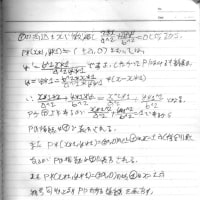
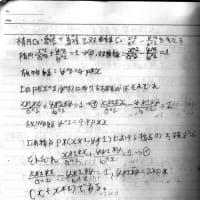
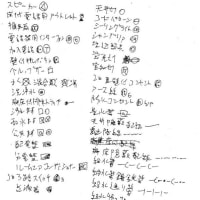
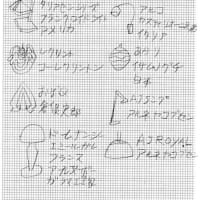
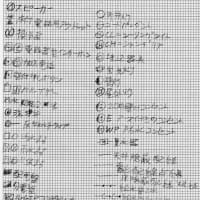
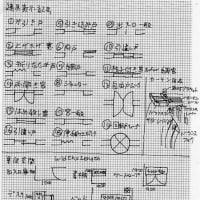
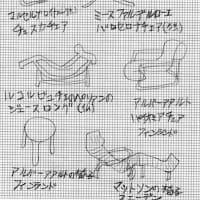
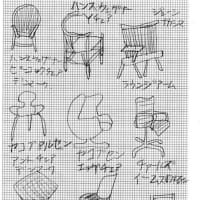
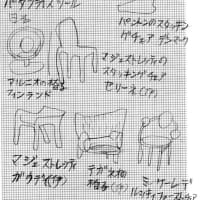
※コメント投稿者のブログIDはブログ作成者のみに通知されます